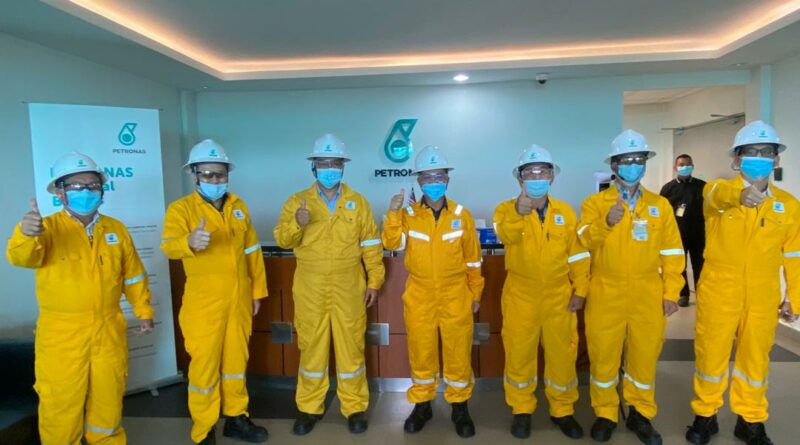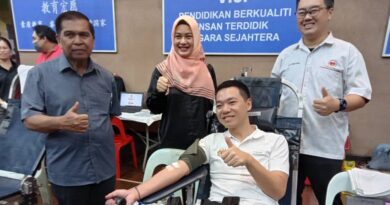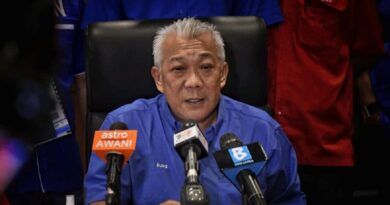Government will continue to spearhead efforts to develop oil and gas industry
SIPITANG: Sabah’s oil and gas industry has developed significantly under the stewardship of the National Oil Company (PETRONAS), which has played an important role in directing the industry’s growth since its in caption in 1974.
Efforts in recent years regarding deep water exploration and production in Sabah’s offshore fields and the improvement of the Production Sharing Contract (PSC) by PETRONAS to optimally regulate the upstream has enabled the country to prosper from the state hydrocarbon resources.
Since 2011, when Sabah Sarawak Integrated Oil and Gas Project (SSIOGP) development started together with the Petronas Chemical Fertilizer Sabah Sdn Bhd (PCFSSB),also known as the Sabah Ammonia Urea (SAMUR) project, there have been causing significant spill over effects for local communities in the Sipitang area.
During a recent visit to the facility last week, Dr. Joachim Gunsalam, Deputy Chief Minister cum Minister of Industrial Development said, “I am indeed pleased when informed that PCFSSB workforce comprise of 80 percent talented Sabahan and meanwhile, 77 percent of overall PETRONAS Sabah staffs are Sabahan.
“It is a positive thing for Sabah and it is in fact, in line with the aspiration of the state government in ensuring direct local community participation in the industry,” he said.
Through the state agency Sabah Oil and Gas Development Corporation (SOGDC), the state government will continue to spearhead efforts to develop Sabah’s oil and gas industry through the dedicated state oil and gas industrial park; Sipitang Oil and Gas Industrial Park (SOGIP) and further develop its potential as a world-class integrated petrochemical site in the region.
Despite the fact that Sabah is the largest crude oil producing state in Malaysia (accounting for c. 42 percent of the total Malaysian production), Sabah still experiences the highest state unemployment rate (5.8 percent – in 2018) and the slowest rate of economic growth in Malaysia (1.5 percent – in 2018).
This is a clear indication that the oil & gas industry must increase its contribution to Sabah’s local economy in order to sustainably support its population and boost value-add activities. Moving forward, it is critical for the state to continue moving up the value chain in order to maximize the benefits derived from its hydrocarbon resources and create valuable spin-offs across the state.
To realize this vision, core infrastructures including roads, highways, pipelines, power and water supply will require significant investment, in order to facilitate increased downstream activities.
Haji Abdul Kadir Abdullah, Chief Executive Officer of SOGDC, also highlighted the company’s efforts in attracting local and foreign oil and gas players to seek numerous possible investment opportunities at SOGIP.
The proximity and availability of natural gas as feedstock from Sabah’s offshore production facilities through the Sabah Sarawak Gas Pipeline (SSGP) and the tee-off through the Sabah Lateral Gas Pipeline (SLGP) is one of the main attractions that enable SOGIP to be well positioned and competitive as the oil and gas investment hub in the state.
Also present at the event were Assistant Minister of Industrial Development, Mohd Tamin Zainal, Secretary Permanent of Industrial Development, Thomas Logijin,
Deputy Permanent Secretary, of Industrial Development, Tseu Kei Yue, Chief Executive Officer of Petronas Chemicals Fertiliser Sabah Sdn Bhd, Mohd Kamis A Manap, Sipitang District Officer, Masawi Haji Salleh
and agency under the Ministry of Industrial including Development Department of Industrial Development and Research (DIDR).
SOGDC is in the pipe line in developing oil and gas downstream investment worth RM 15 billion which include petrochemical cluster, oil storage and refinery, and LNG within SOGIP that will create over 12,000 jobs during the Engineering Procurement Construction and Commissioning (EPCC) phase, c. 5,000 maintenance workers during turn around, and c. 1,700 permanent operation staffs.
It is the present state government’s aspirations to not only increase the revenue from expanded tax generation but also to enhance inclusiveness towards an equitable society with more access to economic opportunities surrounding the community directly and indirectly.
Ends



